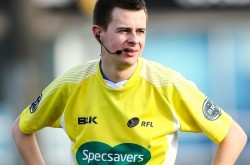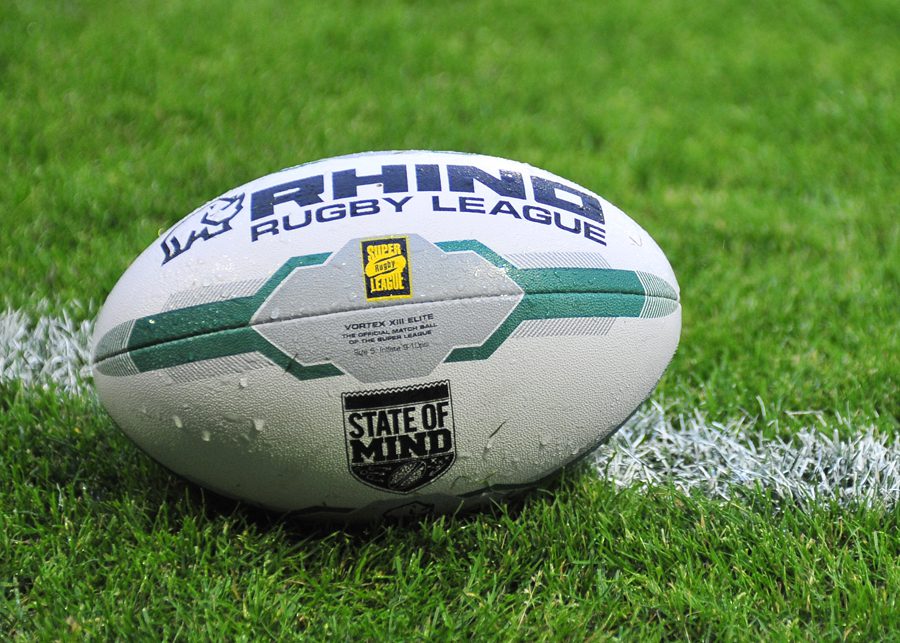The fitness and match performance of First Utility Super League referees has been explored by sports scientists at Leeds Beckett University.
Commissioned by the RFL, the Leeds Beckett research study aimed to identify referee decision-making accuracy, the physiological and movement demands of refereeing during matches, as well as exploring the influence of a referee’s age, experience and fitness on performance.
“This piece of research will be a valuable asset for the game of Rugby League moving forward.”

Led by Dr Stacey Emmonds, Senior Lecturer in the School of Sport at Leeds Beckett, their research revealed the average decision-making accuracy of referees was between 69% and 79%, higher than reported for rugby union referees (54%) and similar to that observed in top flight football (72-87%).
Findings from the research also suggest that both referee fitness and their experience level are two key elements in achieving a successful level of performance.
The study also explored the influence physical demands of refereeing impose on decision-making capabilities in Rugby League referees during match-play, examining the link between acute and accumulative fatigue and incorrect decision-making.
One of the unique elements of the research project was that the researchers analysed the accuracy of Rugby League referees during competitive match-play, as opposed to similar research in other sports which has mostly been carried out using retrospective video footage.
The research pinpointed reasons for a successful level of performance
The RFL are currently on the lookout for talented people to take up the whistle
Based on the findings of this research, the RFL have looked to develop their current fitness testing protocols for referees and have worked with the sports scientists at Leeds Beckett to create new training protocols for Rugby League referees.
These include the training and assessment of referee decision-making accuracy under various levels of physical fatigue.
The protocols have been developed based on the movement demands of referees during match-play and also include the assessment of referee decision-making accuracy, using naturalistic viewing angle clips taken from match-play.
This is an entirely new approach to training referees, with referee fitness and decision-making often trained in isolation previously.
Speaking about the findings, Leeds Beckett University’s Dr Stacey Emmonds said: “As Rugby League continues to develop and grow, players are becoming fitter, fast and stronger, which is changing the dynamics and pace of the game.
“The increase in high-intensity running has also placed increased demands on Rugby League referees.
“This research set out to explore the decision-making demands of refereeing in Super League.”
The outcome of this research is set to improve in-game training of Rugby League Match Officials.
“The key findings of this research have allowed us to work in conjunction with the refereeing department at the RFL to develop innovative training methods that are based on the demands of refereeing during match-play,” Emmonds added.
“This has allowed us to make their training more specific to match-play, developing training methods that both develop fitness and in-game decision-making capabilities concurrently.”
Steve Ganson, the RFL’s Head of Match Officials, added: “These are impressive results.
“Our referees are dedicated to improving accuracy and high levels of performance. We have a relatively inexperienced group at this moment in time but, as the study shows, with experience, their accuracy levels should get even better.
“This piece of research will be a valuable asset for the game of Rugby League moving forward.”
For more information, contact Mark Dorey on 0113 812 3021 or email m.dorey@leedsbeckett.ac.uk
The RFL are currently on the lookout for talented people to take up the whistle. For more information, click HERE www.rugby-league.com/get_involved/match_officials/becoming_a_match_official

